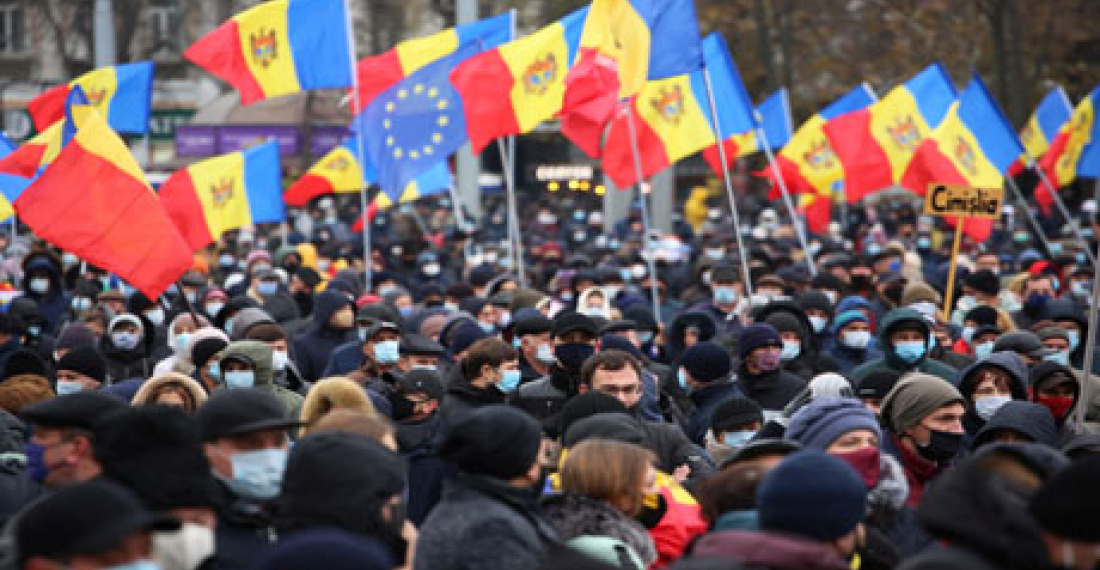Thousands of supporters of incoming Moldovan president Maia Sandu rallied in Chisinau on Sunday to demand a snap parliamentary election, accusing parliament of trying to sabotage her ability to fight corruption.
Sandu defeated the pro-Moscow incumbent Igor Dodon in a run-off vote last month but will share power with a parliament and government run by lawmakers aligned with Dodon. Sandu’s supporters protested after parliament on Thursday hastily pushed through a law to strip her of control of the intelligence service.
The move was backed by the Socialist party, which Dodon used to lead and is the largest in parliament, and the party of Ilan Shor, a businessman convicted of fraud and money-laundering in connection to the $1 billion bank scandal.
Shor denies wrongdoing and is fighting an appeal against his conviction.
“This majority adopts laws that strip the powers of the president so that we cannot fight corruption and thieves. These laws are intended to preserve the criminal schemes of thieves,” Sandu said at Sunday’s rally. “We will go to the end until we cleanse the country of corrupt officials.”
Waving Moldovan flags and shouting “to prison” and “resign”, the protesters called for parliament to be dissolved and Sandu to set the date for a snap election.
Parliament also passed legislation at the first reading that would give special status to the Russian language, which is widely spoken alongside Romanian in the country that borders Ukraine and EU member state Romania. It also lifted restrictions on broadcasting Russian TV channels.
Separately on Sunday, hundreds of farmers parked tractors and combine harvesters on the outskirts of Chisinau to protest a hike in value added tax (VAT) in the government’s 2021 budget.
source: commonspace.eu with agencies






